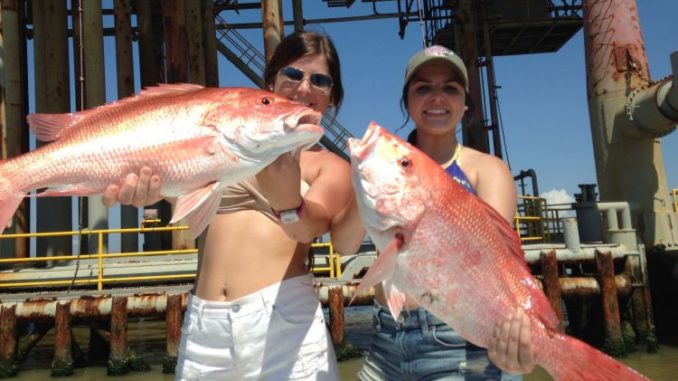
Congressman Garret Graves also voices opposition
Less than 24 hours after it was announced, a pilot program by the Louisiana Department of Wildlife and Fisheries that would award 150 randomly selected state anglers access to 25,000 pounds of Gulf red snapper starting in 2018 continued to garner negative reviews from the recreational fishing community.
LDWF’s Exempted Fishing Permit (EFP) program would have no daily bag limit for the 150 participants. Instead each angler would receive their limit of snapper and wouldn’t be confined to a particular season or to state waters, and could choose the days when they decide to head offshore. Participating anglers would be required to record the fish they catch and throw back and communicate that to the Department via their smartphones.
Representatives from the Coastal Conservation Association of Louisiana and the Theodore Roosevelt Conservation Partnership said they were against the program Thursday afternoon, saying it was nothing more than an individual fishing quota program for recreational anglers.
On Friday morning, the American Sportfishing Association’s conservation director also weighed in.
“ While ASA has long advocated for expanded consideration of angler-provided harvest data through new technology like smartphones, we are deeply concerned with the long-term ramifications of the pilot program that the Louisiana Department of Wildlife and Fisheries unveiled on May 25, to the surprise of the entire recreational fishing community,” Mike Leonard said in a press release. “This pilot program is obviously the first step toward creating a harvest tag program for red snapper. ASA and several other organizations recently completed an extensive project working with anglers and industry members throughout the Gulf region to explore alternative management options for Gulf red snapper, including harvest tags.
“While ASA is not opposed to harvest tags as a fisheries management tool under unique circumstances, among the many problems with applying this approach to Gulf red snapper is one of simple arithmetic. According to NOAA Fisheries, approximately 422,000 private recreational red snapper tags would be available Gulf-wide based on recent data. While no accurate estimate currently exists for the total number of Gulf reef fish anglers, it’s extremely likely that there are more Gulf reef fish anglers than available tags. Therefore, if harvest tags were implemented Gulf-wide, anglers would probably be lucky to receive a single tag for the entire year.”
Implementing a tag system would either drastically limit the number of tags issued per angler, or the number of participating anglers, he said.
“What is most unfortunate about this proposal is the secretive way it was developed and released by state officials,” Leonard said. “For a state that hails itself as a ‘Sportsman’s Paradise,’ we would hope the state would work with its recreational fishing community to cooperatively develop legitimate management approaches, and not attempt to force upon anglers a non-viable and controversial management approach that they strongly oppose.”
LDWF’s proposal immediately came under fire for the timing of its release. On Wednesday, several people attended a lengthy meeting at Department headquarters in Baton Rouge to talk about ways to fix red snapper management and to discuss ideas that could be presented to the Gulf Council.
But the quota program outlined in Thursday afternoon’s press release wasn’t mentioned. And the EFP application was sent to the National Oceanic and Atmospheric Administration on May 19 — nine days before Wednesday’s meeting at LDWF headquarters.
“This proposal never came up one time during that more than two-hour discussion,” said Chris Macaluso, with TRCP. “This was done completely behind our backs with no consultation by recreational fishermen. This is clearly a move designed to privatize a public resource, and we are completely opposed to it ….
“The recreational fishing community has no choice but to be against this, and we’ve been very clear with the department that we’re against this …. Imagine doing this for speckled trout. Imagine suggesting this for redfish — we’re going to create a system where people own the redfish and they can go when other people can’t go. Would anybody accept that?”
Congressman Garret Graves (R-Baton Rouge), who sponsored legislation that would remove management of Gulf red snapper from the federal government and award it to the five Gulf states, said in a release that the proposal appeared to lack any input from Louisiana fishermen.
“All of the recreational anglers I have discussed this with are opposed,” Graves said. “We cannot and should not expand a system that picks a fraction of 1 percent of fishers and designates them as winners, while the rest of us are left with nothing.”
Patrick Banks, LDWF’s assistant secretary of fisheries, did not reply to a phone message seeking comment for this story.
To see the state’s complete red snapper pilot program application, click here.


